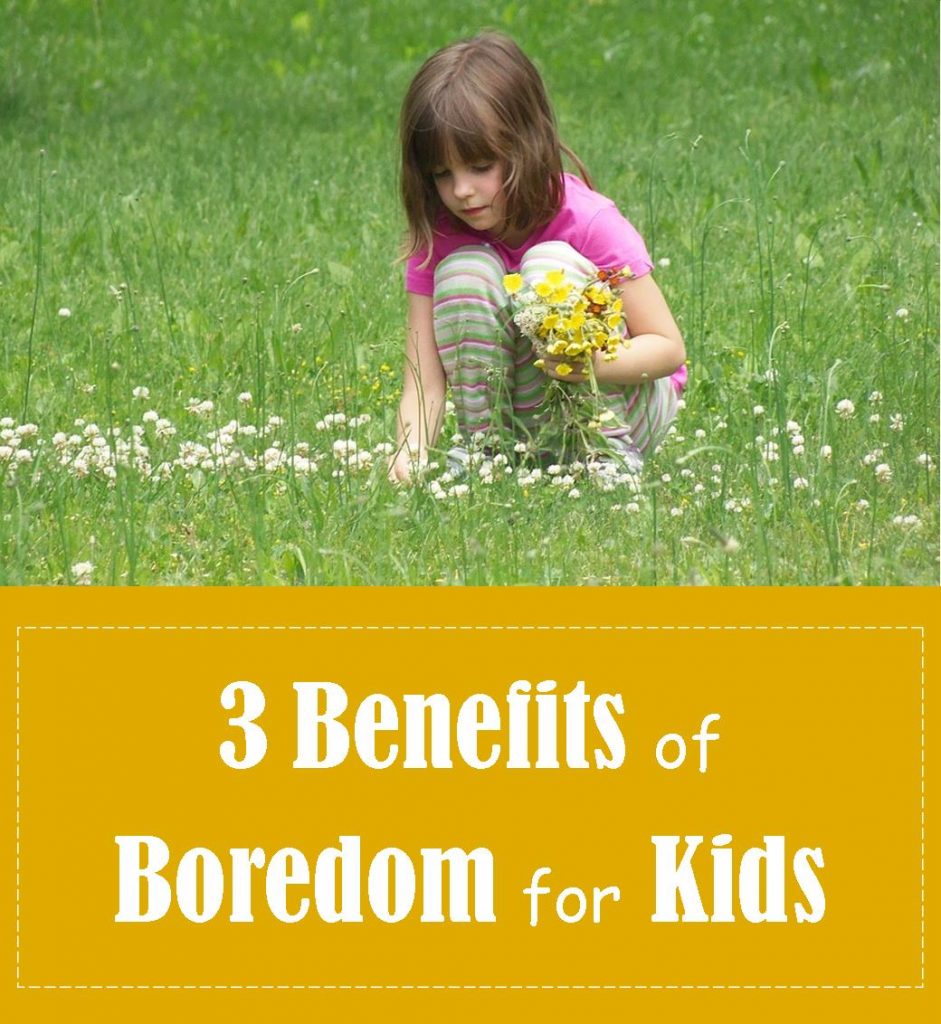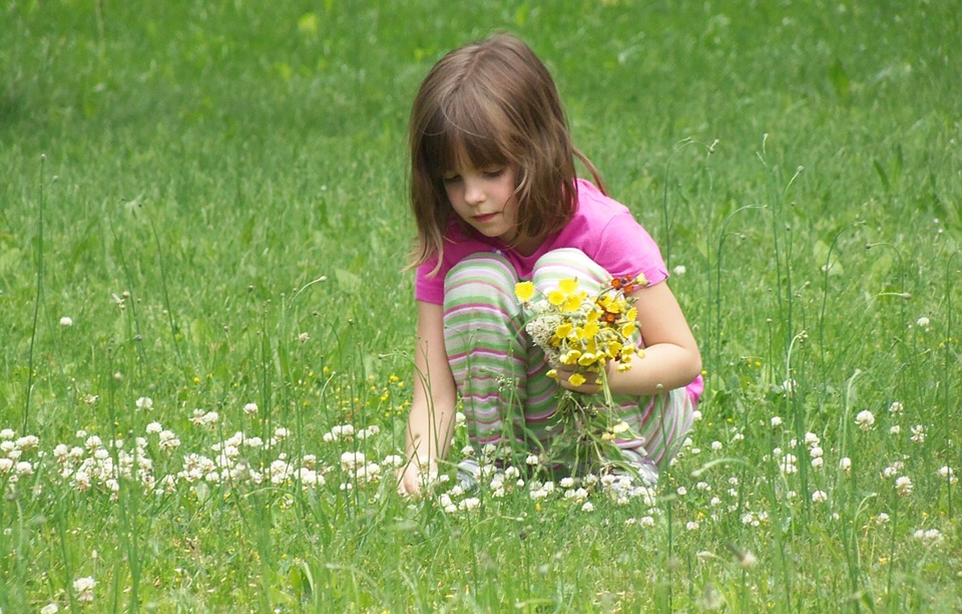
“A generation that cannot endure boredom will be a nation of little men, of men unduly divorced from the slow process of nature, of men in whom every vital impulse slowly withers as though they were cut flowers in a vase.”
Bertrand Russell, The Conquest for Happiness
In the opening quote, Bertrand Russell says basically that some boredom is part of living a happy life. I agree with him. When my kids tell me they’re bored, I almost always say something like, “Yay! Now great things can happen!” Sometimes they sigh and look at me like I’ve lost my mind, but, hey, there’s plenty of truth behind what I say!
I do try to keep my kids off screens when they raise their boredom flags, because screens are easy distractions. Television and computer games have their place, but if our kids use them as a crutch they’ll never learn to tolerate boredom. They will miss out on the many benefits of boredom, including these three:
1. Sparks Creativity
With nothing to do, our kids can become more creative. In one study, researches found that boredom leads to daydreaming, and daydreaming leads to new ideas. This is probably why we come up with new ideas for our projects while we’re walking or showering: we’re daydreaming.
So when our kids are bored, I think we should let them sit with their boredom so their mind can wander and daydream. If we allow them to stare up at the ceiling or scribble, they inevitably find things to do. During Lent, my family has a screen fast on Fridays. No screens. My kids don’t really complain about this after the first week because they always find some meaningful activity to fill their time. Crafts, piano playing, woodworking: my house begins to hum with creative endeavors.
2. Moves Kids Outdoors
Children are spending less and less time outdoors even though “a direct exposure to nature is essential for healthy childhood development-physical, emotional, and spiritual,” as Richard Louv argues in his influential book Last Child in the Woods. Children today know a lot about environmental threats to the health of the planet, but they might not be able to identify a single plant in their own backyards let alone in their local nature preserves.
So, when our kids complain of boredom, we can shoo them outdoors like our parents did with us. I remember long, lazy summer afternoons when I was growing up. With nothing to do, my friends and I would literally lie on the grass staring up at the sky. We’d watch the clouds floating past or a bird flying with a twig in its beak. Once we noticed a crab apple tree and got sick eating too many tart apples.
I admit my kids are not outdoors as much as I would like, but I do try to ensure they get out every day. I frequently take them to a protected regional park near our house with walking trails and a shallow stream. I sit and read while they muck about in the water. Complaints of boredom are the perfect excuse for these saunters.
3. Builds Sibling Bonds
When they’re bored, my kids often brainstorm together to come up with something to do. They might play a game, go on a bike ride, or decide to bake together. This often happens during our Friday screen fasts. Regardless what they do, I’m happy that they’re having conversations and playing together rather than sitting next to each other staring at a screen. Their boredom leads them to deeper connection while they play and explore together.
Offering Suggestions
Healthy children naturally engage with their world: exploring, creating, and imagining through play. This is called emergent play. So, I very rarely solve the boredom problem for my kids. I tell them they need to find something to do or they can help me with chores!
However, if they really seem to be stuck and can’t find anything to do, it’s okay to offer some suggestions. Very small kids, in particular, can become frustrated doing the same activity for too long, but they don’t realize they need to find something new to do. They just need a little guidance.
When my kids were little, I kept a “rainy day” box that I took out not only on rainy days, but anytime my kids needed a little inspiration. The box had crafts, arts supplies, books, and small building sets. Boredom buster books like this one might spark some ideas.
Bertrand Russell believes a generation that “fears” boredom (or can’t tolerate it) will be a generation of “little men.” We want our children to experience those “vital impulses” that come from boredom: creativity, companionship, and curiosity about “the slow processes of nature.” Boredom feels unpleasant at first, but if we can resist mindless distractions, boredom inevitability reminds us of or leads us to things that matter.
Resources
The Green Hour: A Daily Dose of Nature for Happier, Healthier, Smarter Kids by Todd Christopher. “Here you’ll find a range of projects, fun facts, and science lessons meant to engage and invigorate your child, as well as the practical advice for parents that makes getting outdoors easy and worry-free. With creative, science-based ideas for a variety of natural settings, getting your family’s daily dose of nature just got easier.”
Unlock Your Imagination: More Than 250 Boredom Busters by DK. Screen free activities.

